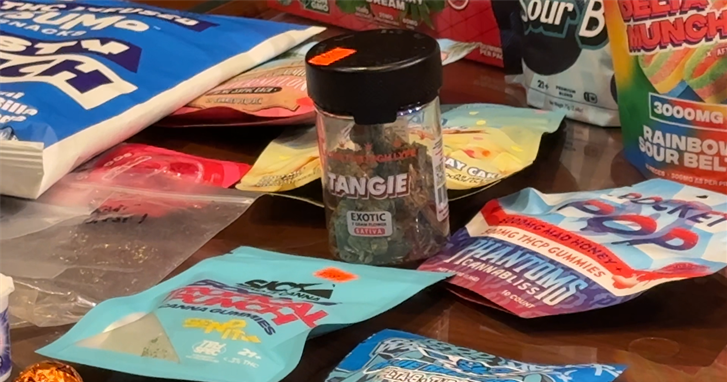[#item_full_content] [[{“value”:”Adult use cannabis is illegal in Pennsylvania. But anyone can go to their local gas station and grab a package of delta 8 gummies or “Do-weed-o’s”— so long as the products are marketed as hemp.A state senate hearing this week raised concerns about the hemp industry in Pennsylvania.Hemp was legalized in the 2018 Farm Bill. Lawmakers, recognizing that the cannabis plant had other uses than getting people high, made a legal distinction: if a cannabis plant has less than .3% THC in its dry weight when it is harvested, it’s hemp. If it has more, it’s marijuana and still a schedule one drug.
(new Image()).src = ‘https://capi.connatix.com/tr/si?token=40471f2a-71f9-4a4e-8b81-55d86c261928&cid=9f284bf6-13de-452e-8de1-3a033d405231’; cnx.cmd.push(function() { cnx({ playerId: “40471f2a-71f9-4a4e-8b81-55d86c261928” }).render(“9ce40d7f211c4e57b215313dd4c0e4e8”); });
THC is the chemical in cannabis that intoxicates people.The Farm Bill changes let hemp farmers get back into fabric and construction production, and made space for the medicinal potential of cannabis (like CBD products).However, that .3% threshold for THC openned the door for intoxicating products as well. Businesses will extract THC (and other intoxicating chemicals) from legally grown hemp plants to make gummies, chocolates, or other processed foods. They keep the finished product below a .3% THC dry weight level, which is legally creative and also still enough chemicals to intoxicate the average person.While lawmakers argue over legalizing adult use cannabis across the United States, the intoxicating hemp industry has already exploded thanks to legal semantics.State and federal regulations have not kept up.For example, there are no federal laws about selling hemp to minors. Only some states have cannabis specific manufacturing or labeling rules. While some businesses are working to create intoxicating products by the books and in good faith, many manufacturers and retail locations are operating with no guard rails.A 13 year old could buy a brightly labeled bag of Delta 8 gummies from the gas station, and neither the child nor the gas station owner have any clue what’s actually inside the product.At today’s hearing— district attorneys, medical marijuana corporations, and law enforcement said that bad actors take advantage of loose regulations. Many describe the .3% as a legal loophole that needs to be closed.
The medical marijuana industry in Pennsylvania has strict rules on testing and tracking their products, labeling, dosages, and more.“With hemp, you don’t have to do any of that. You don’t have to pay any taxes. You don’t have to worry about people coming in looking at your facility,” said Chris Lindsey, a spokesperson for the American Trade Association for Cannabis & Hemp.”You don’t have anybody testing your products or comparing them to what you have on the label,” Lindsey said.Pennsylvania is one state with very few guard rails in place for hemp products. “We need some clarity on what is legal and what’s not,” said Sen. Dan Laughlin, a Republican from Erie who is chair of the Law and Justice Committee that hosted the hearing.“We need clarity on the packaging and labeling, because that seems to be an issue with a lot of these products as well. You’re not really getting what it says on the package,” Laughlin said.Hemp advocates argue there is a legitimate hemp industry separate from a booming illicit market.Thomas Bobrowicz, a hemp producer and shop owner in Harborcreek Pennsylvania, wants to see age restrictions, labeling guidelines, and product testing standards. Bobrowicz argues regulations will wipe out bad actors.However—he opposes efforts to criminalize the entire industry.“The way the marijuana industry is regulated currently, it’s not for a small business,” Bobrowicz said. “It would be impossible for a person like me to own a marijuana business in Pennsylvania.””}]]  Read More
Read More


